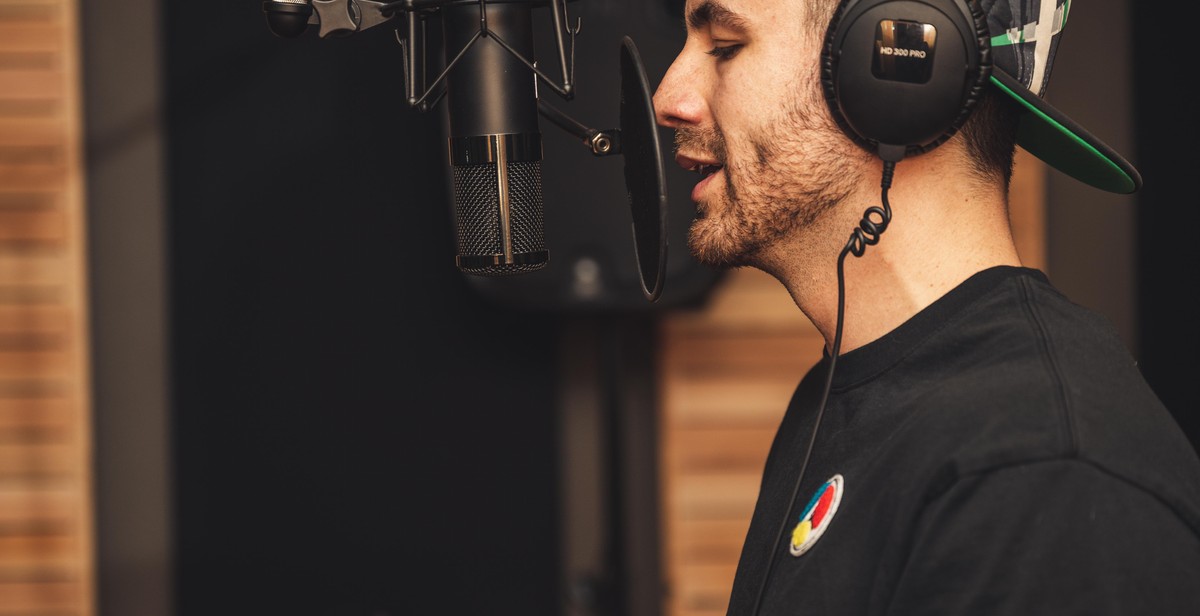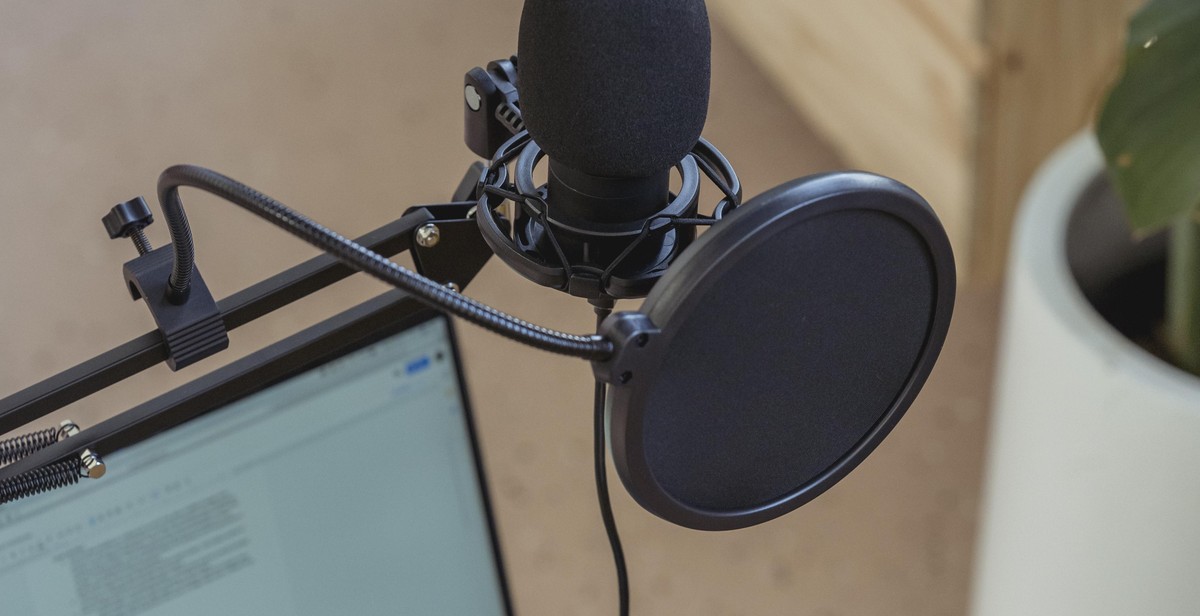How to Create a Crime Podcast: Steps for Planning, Recording, and Publishing True Crime Podcasts
True crime podcasts have become increasingly popular in recent years, with millions of listeners tuning in to hear stories about real-life crimes and the people involved in them. From Serial to My Favorite Murder, these podcasts offer a unique and captivating way to explore the darker side of human nature.
Why True Crime Podcasts are Popular
There are several reasons why true crime podcasts have become so popular. For one, they offer a glimpse into the criminal mind and the motivations behind some of the most heinous crimes in history. They also provide a sense of suspense and intrigue, as listeners try to piece together the clues and solve the crime alongside the podcast hosts.
Furthermore, true crime podcasts offer a sense of community for listeners, who can connect with others who share their interest in crime and justice. They also provide a platform for victims’ stories to be heard and for justice to be sought.
In this article, we will explore the steps involved in creating a successful crime podcast, from planning and research to recording and publishing. Whether you are a seasoned podcaster or a true crime enthusiast looking to start your own podcast, this guide will provide you with the tools and knowledge you need to create a compelling and engaging true crime podcast.

Step 1: Choose a Topic
Choosing the right topic is the first and most important step in creating a successful true crime podcast. The topic you choose will determine your audience and the success of your podcast.
Research Popular Crime Stories
The first thing you need to do is research popular crime stories. Look for cases that have received media attention and have a large following. This will help you determine what topics are popular and what people are interested in hearing about.
You can use various sources to research popular crime stories, such as news outlets, social media, and true crime websites. Make a list of the cases that interest you and that you think would make a good podcast topic.
Find a Unique Angle
Once you have a list of potential topics, the next step is to find a unique angle that will make your podcast stand out. This is important because there are already many true crime podcasts out there, and you want to make sure yours is unique and offers something different.
Consider looking at the case from a different perspective or angle. For example, you could focus on the victim’s family or the investigation process. You could also look for cases that haven’t been covered extensively in the media or that have new developments.
When choosing a topic and angle, it’s important to keep in mind your personal interest and expertise. Choose a topic that you are passionate about and that you have knowledge of. This will help you create a more engaging and informative podcast.
By researching popular crime stories and finding a unique angle, you can choose a topic that will captivate your audience and make your true crime podcast a success.

Step 2: Plan Your Episodes
Once you have settled on the theme of your crime podcast, the next step is to plan your episodes. This involves deciding on the format of your episodes and creating episode outlines.
Decide on Episode Format
There are several episode formats you can choose from when creating your crime podcast. Some of the most popular formats include:
- Single Narrative: This format tells the story of a single crime from start to finish.
- Serial: This format tells the story of a crime over multiple episodes, diving deeper into different aspects of the case in each episode.
- Interview: This format features interviews with people involved in the case, such as law enforcement officials, witnesses, or family members of the victim.
- Re-creation: This format involves re-creating the crime scene or events leading up to the crime through dramatic re-enactments.
When choosing your episode format, it is important to consider your audience and what format will best serve the story you want to tell.
Create Episode Outlines
Once you have decided on your episode format, the next step is to create episode outlines. This involves breaking down the story you want to tell into individual episodes, with each episode focusing on a specific aspect of the case.
Your episode outlines should include:
- The main focus of each episode
- The key events or details you want to cover
- The guests or interviewees you want to feature (if applicable)
- The length of each episode
Creating detailed episode outlines will help you stay organized and ensure that each episode flows smoothly and covers all the necessary information.

Step 3: Record Your Podcast
Now that you have your plan and equipment ready, it’s time to start recording your podcast. Here are some steps to follow:
Choose a Recording Setup
Choose a quiet location with minimal background noise to record your podcast. You can use a professional studio or create your own home studio with a good quality microphone, headphones, and audio software.
There are several options when it comes to recording setups:
- USB Microphone: A USB microphone is a good option if you’re just starting out. It’s easy to use and affordable. You can plug it directly into your computer and start recording.
- Audio Interface: An audio interface is a device that connects your microphone to your computer. It provides better sound quality than a USB microphone and allows you to use different types of microphones.
- Portable Recorder: A portable recorder is a good option if you want to record on the go. It’s small and easy to carry around. You can record directly onto the device and transfer the files to your computer later.
Write a Script or Outline
Before you start recording, it’s important to have a script or outline prepared. This will help you stay on track and ensure that you cover all the important points.
Your script should include:
- An introduction
- A brief overview of the crime
- The main points of the story
- An analysis of the crime
- A conclusion
You can also include interviews, sound effects, and music to make your podcast more engaging.
Record Your Audio
Once you have your recording setup and script ready, it’s time to start recording. Make sure to test your equipment before you start and adjust the levels if necessary.
When recording, speak clearly and at a consistent volume. Take breaks if necessary and don’t rush through the script.
After you’re finished recording, listen to the audio and make any necessary edits. You can use audio editing software to remove any mistakes or add sound effects and music.
Now that you have your podcast recorded, it’s time to move on to the next step: publishing.

Step 4: Edit Your Podcast
Editing is a crucial step in creating a professional-sounding podcast. It helps you remove any unwanted noises, pauses, or mistakes, and ensure that your audio has a consistent tone and flow. Here are some tips to help you edit your podcast:
Edit Your Audio
Start by listening to your recording from start to finish. This will help you identify any areas that need editing. You can use editing software like Audacity, GarageBand, or Adobe Audition to trim any unwanted parts, adjust volume levels, and enhance the overall sound quality. Make sure to listen to your audio with headphones on to catch any background noise or hiss that may have been missed during recording.
Add Music and Sound Effects
Music and sound effects can add depth and interest to your podcast. You can find royalty-free music and sound effects online, or you can create your own. When choosing music or sound effects, make sure they fit the theme and mood of your podcast. Use them sparingly and strategically to avoid overwhelming your listeners or distracting from your content.
Once you have edited your audio and added music and sound effects, listen to the final product again to make sure everything sounds smooth and cohesive. Don’t be afraid to make additional edits as needed to ensure that your podcast is polished and ready for publishing.

Step 5: Publish Your Podcast
After creating and editing your true crime podcast, it is time to publish it. This step involves choosing a podcast host and submitting your podcast to directories.
Choose a Podcast Host
A podcast host is a platform that stores and distributes your podcast to various directories. There are several podcast hosting platforms available, and you need to choose the one that best suits your needs. Some popular podcast hosts include:
- Libsyn
- Blubrry
- Buzzsprout
- Podbean
- SoundCloud
When choosing a podcast host, consider factors such as storage space, pricing, and analytics. Most hosts offer a free trial period, so take advantage of this to test the platform before committing to a subscription.
Submit to Podcast Directories
Submitting your podcast to directories increases its visibility and helps you reach a wider audience. Some popular podcast directories include:
- Apple Podcasts
- Spotify
- Google Podcasts
- Stitcher
- TuneIn
Each directory has specific requirements for submission, so be sure to read and follow their guidelines carefully. Once your podcast is approved, it will be available for listeners to find and subscribe to.
| Directory | Submission Link |
|---|---|
| Apple Podcasts | https://podcastsconnect.apple.com/ |
| Spotify | https://podcasters.spotify.com/ |
| Google Podcasts | https://podcastsmanager.google.com/about/ |
| Stitcher | https://partners.stitcher.com/ |
| TuneIn | https://help.tunein.com/how-do-i-submit-my-podcast-to-tunein-a1OJ0000005XrN5IAN |
It is important to regularly update your podcast with new episodes to keep your audience engaged and attract new listeners.

Promote Your Podcast
Creating a crime podcast is a challenging and rewarding experience. But, it’s not enough to just create great content. You need to promote your podcast to reach a larger audience. Here are some effective ways to promote your podcast:
1. Social Media Marketing
Social media is an excellent platform to promote your podcast. You can create a social media page for your podcast and share your content regularly. You can also engage with your audience and get feedback from them.
2. Collaborate with Other Podcasters
Collaborating with other podcasters in your niche can help you reach a new audience. You can invite other podcasters to be guests on your podcast and vice versa. This can help you build relationships with other podcasters and grow your audience.
3. Use Paid Advertising
If you have a budget, you can use paid advertising to promote your podcast. You can run ads on social media or use Google AdWords to reach a larger audience.
4. Attend Podcasting Events
Attending podcasting events can help you network with other podcasters and promote your podcast. You can also learn from other podcasters and industry experts.
Remember, promoting your podcast is an ongoing process. You need to be consistent and patient to see results. With the right strategies and effort, you can successfully promote your crime podcast and build a loyal audience.
